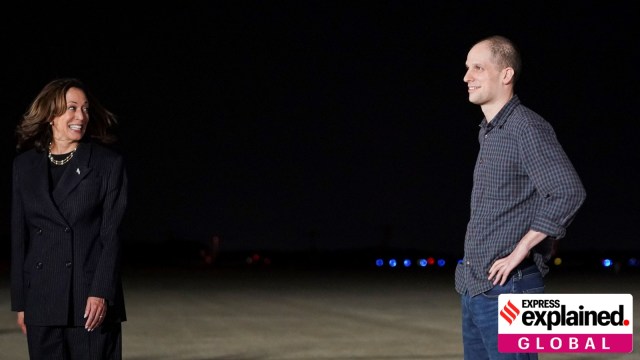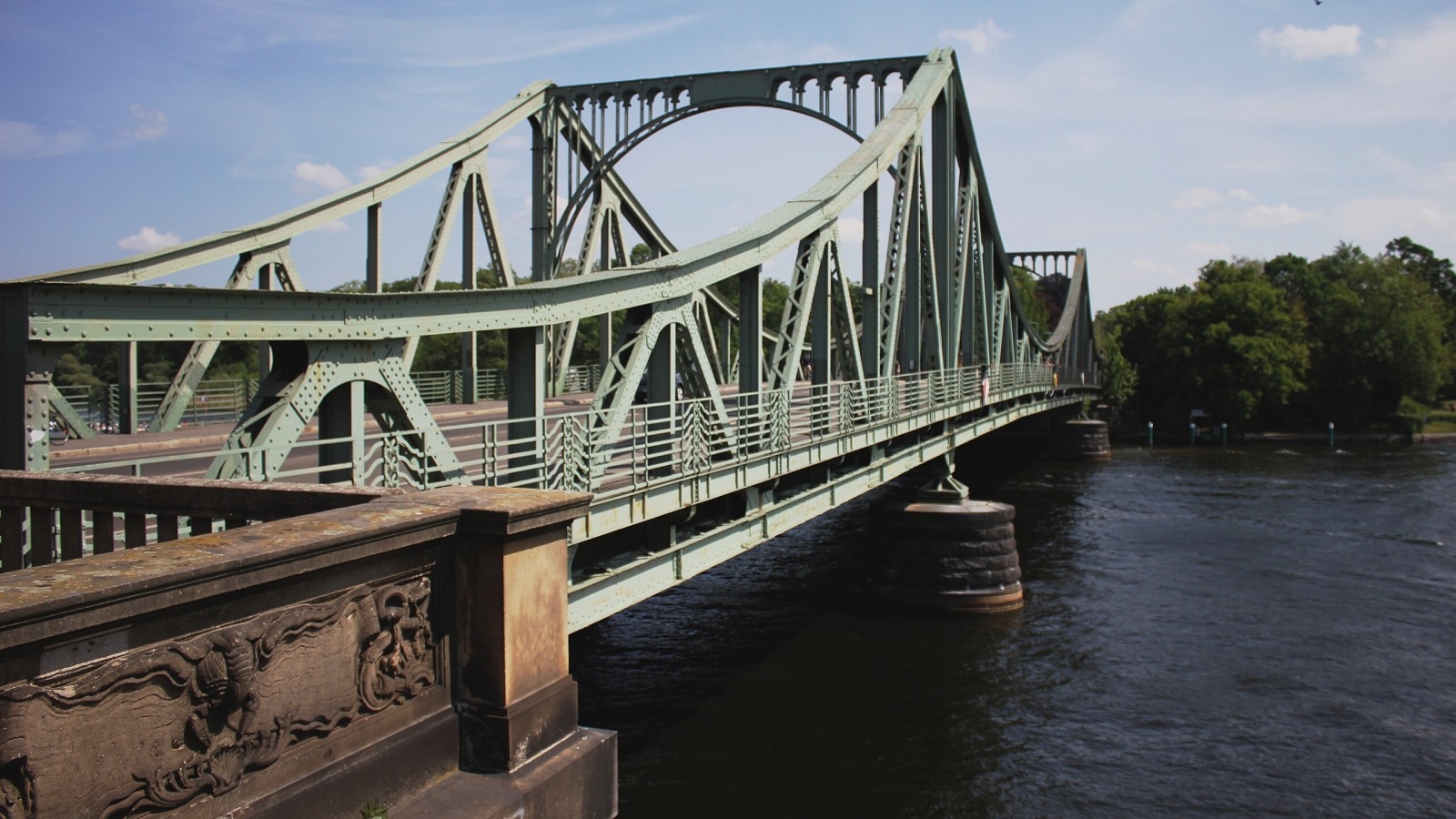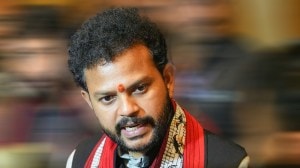Russia-US prisoner exchange: How prisoners become pawns in international power politics
The largest post Cold War prisoner swap between Russia and the West was concluded this week. Here is how prisoners often act as pawns in international power politics, and why securing their release is not ‘easy’.
 US Vice President Kamala Harris meets Evan Gershkovich on August 1. (REUTERS/Nathan Howard)
US Vice President Kamala Harris meets Evan Gershkovich on August 1. (REUTERS/Nathan Howard)Evan Gershkovich, a reporter at Wall Street Journal, and Paul Whelan, a former US Marine, were freed last Thursday as a part of the biggest prisoner swap between Russia and the West since the Cold War. Both had been convicted of espionage, and faced lengthy prison sentences in Russia.
They were among the 16 other people — prominent opposition politicians, journalists, and Putin critics — released by Moscow in exchange for eight individuals, who had been jailed across Europe and the United States, the most prominent of whom is hitman Vadim Krasikov, who murdered a Chechen dissident in Berlin in 2019, and was serving a life sentence in Germany.
Prisoners as leverage
Since times immemorial, rival groups — whether they be tribes, modern nation-states, or even criminal gangs — have used prisoners as leverage against the enemy. If a rival wants them back, they have to give to the captor something valuable in return.
While in the pre-modern world, prisoners of war (PoWs) or conquest were often either killed or reduced to slavery, some lucky (rich) prisoners were freed in exchange for monetary compensation. This finds mention in Homer’s ancient Greek epic Illiad. In Medieval Europe, captured knights commanded varying sums of money depending on their rank and social status. The word ‘ransom’ entered the English language in the 13th century in this context — in Old French, ‘raunsoun’ referred to a “sum paid for the release of a prisoner or captured man”.
Today, there are multiple international treaties, including the 1949 Geneva Conventions, which govern the treatment and exchange of PoWs. But there is no way to enforce these rules. This means that PoWs remain pawns in international power politics. For instance, Russia has at times held back the release of Ukrainian PoWs in its captivity to build domestic pressure against Volodymyr Zelenskyy’s government in Ukraine, according to a Politico report from December 2023.
No set price of freedom
Things are slightly different with prisoner swaps like the one from this week, in that there is no written doctrine which guides these exchanges.
According to Article 2 (1) of the United Nations Charter, “The Organization is based on the principle of the sovereign equality of all its Members”. This includes the respect of domestic laws of each country. While the fairness of a country’s legal system may be questioned — as it is all the time in international politics — at a principle level, countries can punish foreigners for breaking the law.
Thus, the price of a prisoner’s freedom varies on a case-to-case basis, depending not just on who the prisoner is, but also on what the country, which has incarcerated them, can get in return for their release.
Take, for instance, the case of Gershkovich. Being a journalist at the largest newspaper in the US (by print circulation, as of 2023) Gershkovich’s arrest in March last year garnered global attention. Thus, there was significant pressure on the Biden administration to bring Gershkovich back, not least from the Journal itself, which headed a 16-month-long campaign to secure their employee’s release.
The nature of information that a detainee may possess also acts as a lubricant for their (relatively) swift release. The most famous case is that of American pilot Francis Gary Powers, whose U2 spy plane was shot by the Soviets in 1960. He would be freed in exchange for convicted KGB operative Rudolf Abel in 1962 in what is likely the most famous prisoner swap in history. Both governments wanted their respective operatives back quickly, lest they reveal any more secrets that they already haven’t. The Powers-Abel exchange would be picturised in Steven Spielberg’s 2015 film Bridge of Spies, starring Tom Hanks.
Then there are people who get plain lucky. Take the other American — a student by the name of Fredrick Pryor — freed in the Powers-Abel exchange. Pryor was caught in the wrong side of Berlin soon after the Wall came up, and languished in an East German prison for around six months. Exactly how he became a part of the Powers-Abel swap is unclear, but he would likely have remained in prison for longer had that exchange not taken place.
 The Glienicke Bridge is popularly known as the Bridge of Spies, due to the number of spy exchanges, including the Abel-Powers one, that took place on it during the Cold War. (Wikimedia Commons)
The Glienicke Bridge is popularly known as the Bridge of Spies, due to the number of spy exchanges, including the Abel-Powers one, that took place on it during the Cold War. (Wikimedia Commons)
Sometimes, prisoners also become standard tools of diplomacy between neighbouring countries, like India-Pakistan and India-Sri Lanka. Fishermen who have strayed into their neighbour’s territorial waters are routinely arrested and then freed as acts of goodwill. On July 1, New Delhi and Islamabad, through diplomatic channels, simultaneously exchanged lists of civilian prisoners and fishermen in each other’s country. India shared the names of 366 civilian prisoners and 86 fishermen in its custody, while Pakistan gave the details of 43 civilian prisoners and 211 fishermen in its custody.
Tough decisions all around
By and large, democracies are often under greater public pressure to free their citizens, especially if the public believes that they have been unjustly or wrongfully incarcerated. This can push them to incur massive costs for the freedom of their citizens.
In March 2016, British-Iranian journalist and charity worker Nazanin Zaghari-Ratcliffe was arrested at the Tehran airport by Iran’s Revolutionary Guard. She was then sentenced to five years in prison for allegedly plotting to overthrow the government, and running an “online journalism course which was aimed at recruiting and training people to spread propaganda against Iran”.
Her husband, Richard Ratcliffe, campaigned tirelessly for her release, and there was notable political pressure on the Tory government to do something. The problem was that Iran’s demands amounted to the payment of roughly 400 million pounds. In 1971, the government of the Shah of Iran paid Britain for an order of more than 1,500 tanks and other armoured vehicles. Britain cancelled the undelivered part of the order when the Shah’s government fell in 1979, but never paid the Islamic regime back for it. This was the money Iran wanted back in exchange for Zaghari-Ratcliffe. Britain paid up in 2022, and Zaghari-Ratcliffe was released.
Many experts argue that such hefty payments, however, set a bad precedent, acting as encouragement for hostile regimes to arbitrarily take prisoners. In January 2016, the US had paid Iran some $400 million for undelivered military equipment in exchange for four Iranian-Americans. This might have set a precedent for the Zaghari-Ratcliffe case. In fact many believe that her arrest merely two months after the Iran-US deal was little more than a shakedown attempt — in which Iran succeeded.
Similar criticisms have been thrown around even in the most recent swap, although no money was exchanged, according to National Security Advisor Jake Sullivan. Rather, the criticism was regarding the differing profiles of the people released by either side — while Russia mostly freed jailed dissidents, the West ended up releasing convicted fraudsters, criminals, and a hitman.
Something similar also happened in the prisoner swap which freed US basketball player Britney Griner, who was sentenced to ten years in prison in Russia for possessing cannabis oil. The price for her freedom was notorious arms dealer Viktor Bout, who is nicknamed “merchant of death”.
Republican presidential nominee and former President Donald Trump posted on the social media platform Truth Social on Tuesday: “Are we releasing murderers, killers, or thugs… we never make good deals”. He said that the recent deal was setting a “bad precedent for the future”.
At the end of the day the price of a prisoner’s freedom is not just limited to what is paid for them in the particular exchange — by paying a heavy price for their citizens’ release, a country increases the probability of others being captured and imprisoned unjustly.
There are no easy answers to this dilemma. As US National Security Council spokesman John Kirby told CNN on Friday, “The previous administration also had to make tough decisions to get Americans home… That’s what you have to do when you have people in harm’s way over there. You’ve got to make these tough decisions. It’s not easy”.
- 01
- 02
- 03
- 04
- 05






































